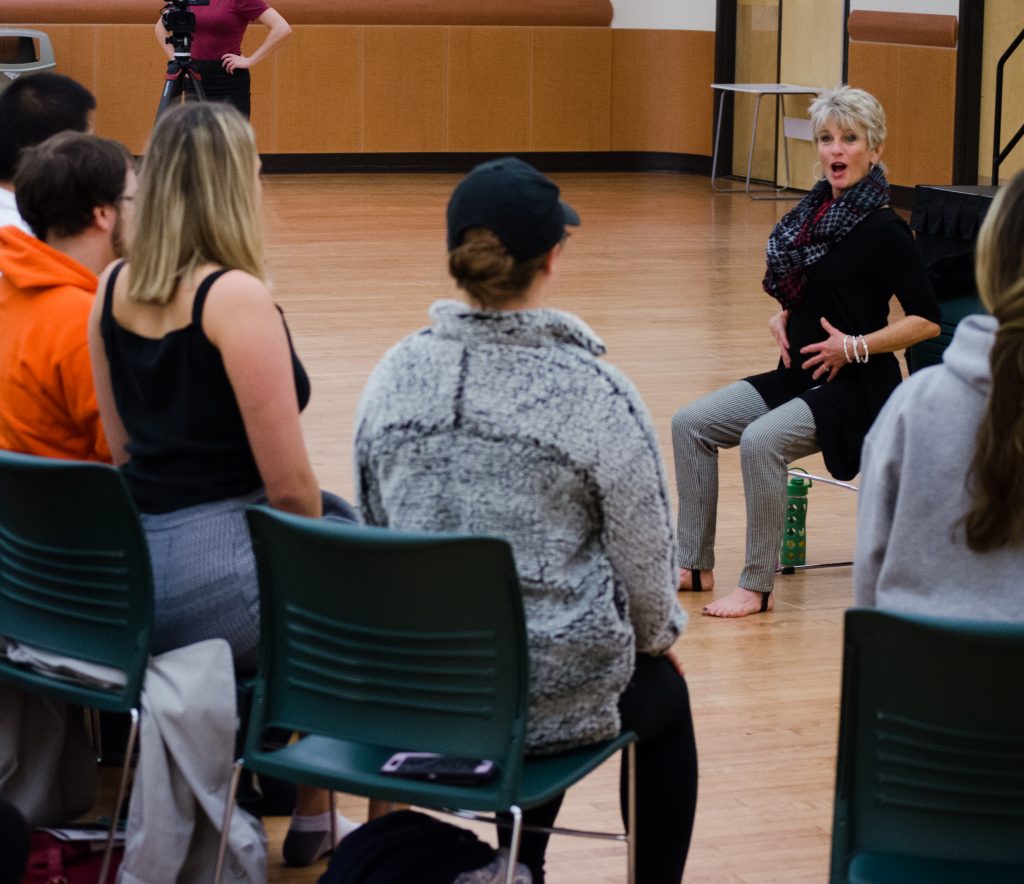
Students and faculty gathered in Old Union Hall to learn about stress management, mindfulness and healthy eating at the annual Healthy Campus Summit on Wednesday.
The annual event, part of Binghamton University’s ongoing Healthy Campus Initiative, featured multiple guest speakers, professors and counselors from BU. Highlighting the ways to improve the health of the student body, the summit also featured various programs, including a de-stress event with therapy dogs and a healthy cooking demonstration and luncheon.
With this year’s theme of “Grit and Resiliency,” the summit aimed to emphasize how the BU community can better develop these qualities in order to expand its capabilities. Each speaker and program used different concepts to show how grit and resiliency can be incorporated into people’s personal and professional lives.
Cindy Cowden, an organizer of the event and a senior associate director of facilities and internal operations, said addressing these topics can help students manage stress better.
“Discussing topics like grit and resiliency will help us help students learn that it’s OK to struggle and that it’s OK for them to consider different alternatives to how they handle stress and difficulties,” Cowden said.
Gregory Eells, director of counseling and psychological services at Cornell University, led two presentations. The first, “Being Resilient, Fostering Grit and Developing Life Skills” provided a detailed description of the concepts of resilience and grit by focusing on enhancing social connections, specifically through vulnerability-resilient role models.
Eells’ second presentation emphasized taking these values and using them to facilitate more positive approaches to stress and failure.
“The time you don’t get what you want is when you learn the most and when something is not normal, we pay the most attention,” Eells said. “People need to realize that they have a lot of power to change their relationship to the things that bother them, and there are some ways of doing that that can help make them more resilient.”
Other presenters, such as Jennifer Wegmann, a health and wellness studies lecturer at BU, and Steven Lynn, distinguished professor of psychology at BU, discussed how mindfulness, meditation and stress management can improve people’s lifestyles.
Johann Fiore-Conte, assistant vice president for health and wellness at BU, said she hoped students take the lesson of mindfulness to heart.
“I would think and hope that students who attend the presentations would be able to stop and pause and reflect on their own life, on how they respond and react to situations and stress,” Fiore-Conte said. “Students should realize that we have control over how we respond.”
Throughout the summit, speakers and attendees also discussed the stigma surrounding mental health and stress. Presenters emphasized this stigma comes from an internalized way of thinking less of oneself. Devon Close, a sophomore majoring in integrative neuroscience, said this discussion helped her learn more about how to handle feelings of stress and self-doubt.
“We’re always worried about what other people think of us if we admit we are anxious or having problems with something,” Close said. “In reality, though, we judge ourselves more harshly than anyone else ever does.”
The Healthy Campus Initiative will continue with more events in spring 2019.


